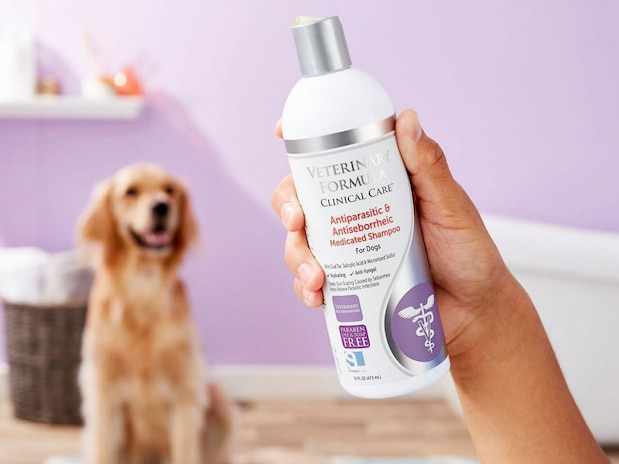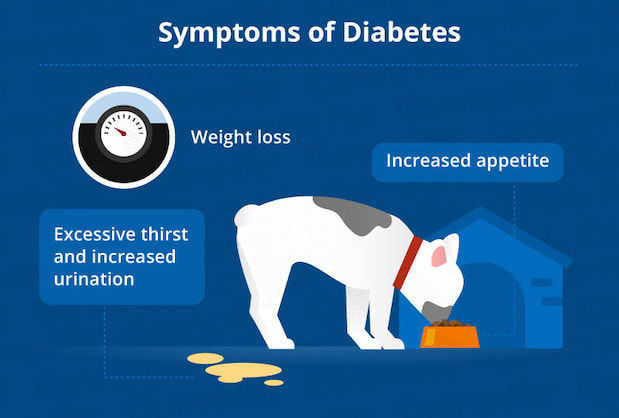Important Health Veterinary Supplies for Your Furry Friend
We all strive to use natural ingredients and stay away from the pharmacy. But just as we know that not everything can be cured with tea, we shouldn’t expect our pets to be fine with water and some food. We should never compromise when it comes to our furry friends’ health.
Depending on the condition of your pet, certain diet changes and medications need to be included for a healthy life. This is where veterinarians and pet chemists are our go-to experts. After all, they know what they’re doing, and taking their advice into consideration can only be beneficial for our beloved pets.

Here are some common health issues and how veterinary supplies could help in treating them.
Parasite Control
Parasites in pets are a common problem. It doesn’t matter how well you feed them or protect them, almost all pets get infected at some point in their life. There are internal parasites such as different kinds of worms that live inside the body, and external ones such as fleas and ticks. Internal parasites are typically ingested, and external are picked up from other animals, or areas with grass or wood.
Depending on the type of infection, different treatments can be used. If it’s nothing serious, deworming products can be applied, but prevention is considered the best treatment. There are different OTC pet veterinary supplies that can help prevent infections that could have a great impact on your pet’s health.
Preventive medications for ticks and fleas help treat certain internal parasites as well. They can be applied topically or given orally. Insecticidal sprays are commonly used to prevent the infestation of fleas in dogs as well as in the house. They contain ingredients that inhibit the development of eggs and kill adult fleas if the pets are already infected.

Chews are flavoured treats that protect against parasites usually for a month, but some may have extended effect up to 3 to 4 months. They are probably the easiest to give to pets because of course they love treats, and many pets tend to spit out tablets given in their food.
Tablets are another option and they’re mostly given to prevent or treat internal parasites. Unlike sprays, there are no restrictions for oral treatments in terms of bathing or swimming.
If you still don’t use preventive medicines for your pet, consult with your veterinarian and go get some from the animal pharmacy.
Vet Diets
If your pet has been diagnosed with a specific health issue, veterinarians can prescribe a special diet that provides the necessary nutrients and doesn’t contain ingredients that may be harmful and aggravate the condition. Certain diseases can be successfully controlled by avoiding certain foods and obtaining the right pet veterinary supplies.
For Allergy and Intolerance
Some breeds are more susceptible to food allergies and intolerance, which can be developed at any age. If your pet is sensitive to certain foods it will vomit, have irritated skin and diarrhea, cough, sneeze, or have ear problems. Some common foods that cause allergies or intolerance are the protein sources in meat, dairy products, wheat, and beef.

In order to treat these conditions, you can find out which ingredient is causing the symptoms with the help of dietary elimination. Once you learn your pet’s sensitivities, you can avoid them and implement the appropriate pet foods to provide new sources of the ingredient that your pet can’t eat. Because proteins are the main problem, many dog or cat foods have them broken down into smaller pieces to reduce allergies.
For Weight Loss
Just like for yourself, the proper nutrition for your dog or cat is crucial. Balance is an important factor for maintaining a healthy weight, but it’s easier said than done. Due to various reasons, many pets become overweight. It may be cute at the beginning but it can have severe consequences if not treated.
In addition to exercising, pets usually need a change in their diet too. It should be low in calories, high in protein for their muscles, and high in fibre. You can talk to a veterinarian to give you some advice, or prescribe a weight loss diet. There are many wet or dry foods that are specially made for weight loss. All you need to do is check the ingredients to see what would be the right choice for your pet.
For Diabetes
In pets with diabetes, the body can’t produce insulin or it doesn’t use it as it should. It’s not curable but with certain changes, it can be kept under control.
There are many important aspects to consider if you’re a first-time pet owner, and being aware of different symptoms that your pet could exhibit is an important one. Symptoms of diabetes include increased appetite, urination, and thirst, weight loss, and lack of energy at the beginning, and depression and lowered appetite in the advanced stages.

Diabetic pets are usually treated with injections. Being active is also very important and diet changes will be suggested. Because of their increased thirst, they should always have water to drink. Food rich in fibre, protein, carbohydrates, and calories is recommended, and in certain cases, it should be low in fats.
Home-cooking should be avoided because of the lack of information on how certain nutrients interact and are absorbed. For this reason, there are many ready-to-go options for diabetic pets. Go to your nearest pet chemist and ask for the best food for diabetes. In this way, you’ll know that your pet has a full meal packed with nutrients.
Antimicrobial Medication
Antimicrobial drugs are used for treating bacteria, fungi, viruses, and other micro-organisms that attack pets. Antibiotics are the most commonly used ones, and they treat infections when bacteria is the cause.
Just like humans, pets can be allergic to antibiotics too, so it’s important to keep an eye on them while they’re taking the medicine.
Typical antibiotics include:
–Amoxicillin – The most prescribed one because it can treat various bacterial infections. It’s used for ear infections, dental and skin infections, gastrointestinal and respiratory infections;
–Cephalexin – It’s popular because it has minimal side-effects. It’s used for deep skin infections, urinary tract and respiratory infections, soft tissue and infections in the bones;
–Metronidazole – It has anti-inflammatory properties that help in treating gastrointestinal infections, diarrhea, and oral infections;
–Clindamycin – It prevents bacterial growth and treats mouth, skin, and bone infections;
–Gentamicin – It’s used for eye and ear infections, pneumonia, blood and skin infections.



